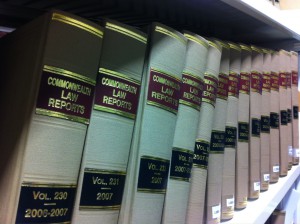The art of writing a good headnote
Writing a good headnote requires a certain mindset, namely to approach the task in the same way as one would in solving a cross-word puzzle, negotiating the way through a maze, or working out a Rubik's cube; for all these endeavours are about meeting a challenge. Moreover, having that attitude is hugely important, for a headnote is an elemental part of jurisprudence, as it plays a vital role in the transfer of judicial learning. To effect that transfer properly a headnote must expose the reasons for what a judge or, in an appeal, all or a majority of the judges, decided, as well as, by way of noting obiter, considerations, or observations, any matter of general importance that might also be drawn from the case.
Naturally such an exposition requires accuracy, but it requires something more: a good headnote must be readable as well.
To achieve these twin qualities, a law reporter must have:
- analytical skills;
- a good writing style;
- the self-confidence to exercise judgement; and
- the intellectual flexibility to be able to choose how best to present each headnote he or she writes.
It must be acknowledged that these attributes cannot be taught. They are intuitive. However, they can be developed, and techniques can be absorbed over time - but only through practice. Having a mentor, generally a patient editor, and reading for oneself published headnotes written by others can certainly help, but real improvement will only come through the experience of writing headnotes which are then reviewed and corrected by more senior law reporters.
Indeed there is every reason, so as to ensure the excellence of headnotes, for the major law publishers to conduct courses for prospective law reporters, with a view to producing accredited reporters who have complied with nationally set standards. This in turn might lead to the creation of a profession of law reporting.
In short, that a number of people acquire the art of writing a good headnote is of great significance to the Law for, as Bingham LCJ once said*:
... it is a task which requires surgical skill to dissect away the blubber which may well surround the judgment and expose what the case really decides, and it requires a gift for succinct and accurate expression, because while a judge can ramble on in a discursive and verbose manner for page after page, the law reporter only has a few lines in which to encapsulate the nub of the decision.
*Address given at a seminar held in Cambridge, England, cited in "Current Issues" (2000) 74 ALJ 415
Dr R J Desiatnik is Assistant Editor of the NSW Law Reports and Editor of the Thomson Reuters District Court Law Reports (NSW), among other roles. He is a barrister with more than 35 years' experience in law reporting.
